Have you decided to embark on an ERP implementation project to integrate your disparate business systems, and get in-depth insights into your business processes from a single source of truth? If so, good choice! Now you’re probably wondering which specific ERP software you should get for your business.
No doubt there are many factors you need to take into consideration when making your choice, cost and ease of implementation among them. One of the most important factors determining your choice of ERP software is, of course, whether it offers the necessary features and functionalities that will improve the efficiency of your business processes.
However, those same processes differ significantly between different industries and sectors. Even between your business and a rival within the same industry, there can be many differences in the same operational processes due to the culture of the organisation and availability of technology amongst other factors.
This means that no ERP software can cater perfectly to your unique business needs out of the box, no matter how comprehensive its feature set, or how specialised its design is towards the particular needs of the industry your business operates in (and industry-specific ERP software comes with its own set of issues).
However, modern ERP software can integrate third-party apps to beef up customer relationship management (CRM), e-commerce, or other features and functionalities which might otherwise be lacking in the ERP solution you’re considering for your business.
And with the availability of native integration through application programme interfaces (APIs) or connector tools, these third-party apps can be easily integrated into ERP software without costing your IT department too much in term of time and resources.
Therefore, whether an ERP software can integrate a particular third-party extension or add-on is probably one of the main questions on your mind while you’re considering your options.
To help you decide on an ERP software for your business with that in mind, here are some examples of third-party applications that can be integrated into SAP Business One, Oracle - NetSuite, Microsoft Dynamics 365 Business Central, or Sage 300 ERP. They are categorised into the different features and functionalities that best answers your business needs.
Do You Need A POS System That Can Exchange Data With your Back-End?
If your business is in a business-to-customer (B2C) sector such as retail or F&B, you're probably familiar with using a Point-of-Sales (POS) system for handling transactions with your customers.
But a standalone POS system may not offer certain functionalities that would make your life easier, such as inventory management to help you keep track of your current levels of stock, and pertinent information about customer preferences to help your staff make the sale.
To acquire these functionalities, you can integrate your POS system and back-end operations by integrating them with an ERP software, allowing both to share relevant data between each other and help your business serve your customers much more effectively.
For a POS system that is designed to be easily integrated with an ERP software, we recommend the Epoint POS solution.
Epoint Point-of-Sales (EPOS)
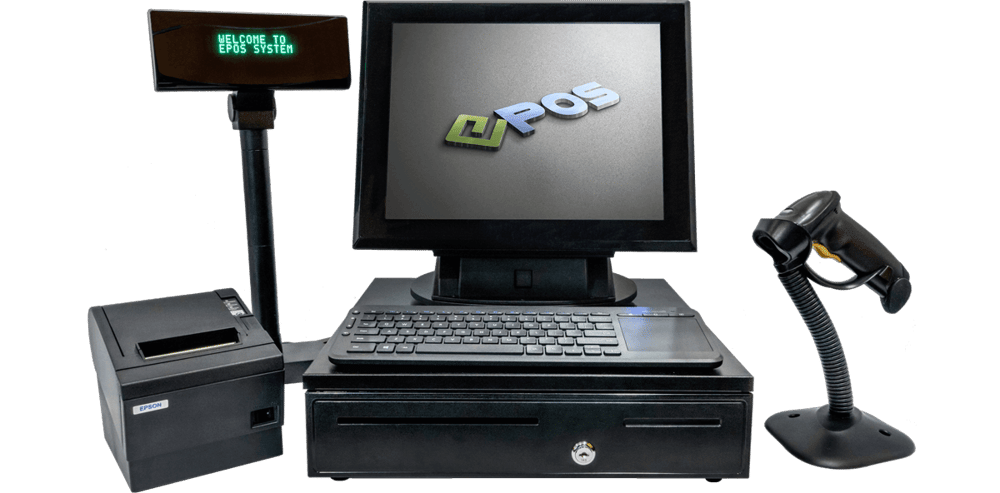
- A Windows-based touchscreen POS system.
- Allows you to define menu layouts to fit business needs in the retail and F&B industries.
- Because it's based on Windows, can easily be integrated with Microsoft Dynamics 365 Business Central.
Do You Need A Two-Way Flow Of Data Between Your E-commerce Store And Your Back-End?
If your B2C business uses an E-commerce store, you may have experienced having to manually transfer data between your E-commerce store and your back-end systems. This is not only a tedious process, but also exposes your business to problems due to errors made during manual data input.
Just like with integrating a POS system, integrating your e-commerce store with an ERP software links both in a two-way real-time data flow, which not only eliminates user errors, but also offers significant improvements in efficiencies such as automatic updates of inventory on both your online storefront and your back-end systems.
To help you connect your e-Commerce store with your back-end, we recommend these e-Commerce platforms which are designed to be integrated (natively or with a connector tool) with ERP software.
SANA Commerce
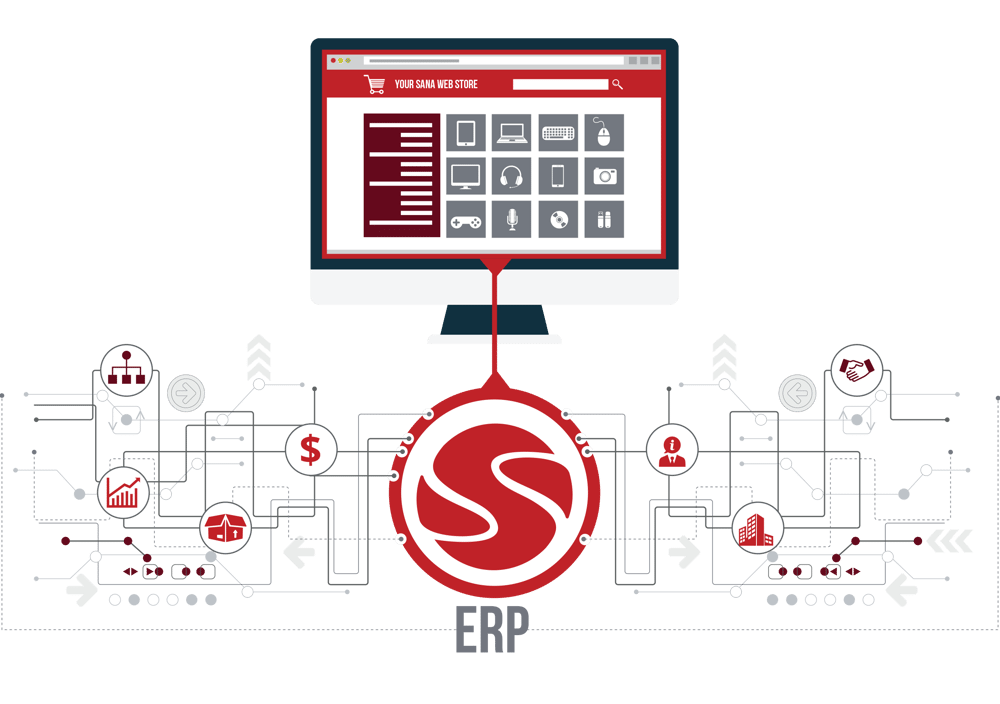
- A powerful e-commerce software which helps you develop B2B and B2C e-commerce and web store solutions
- Boosts customer satisfaction by enabling quicker, more personalised service.
- Available for SAP Business One and Microsoft Dynamics 365 Business Central.
Shopify
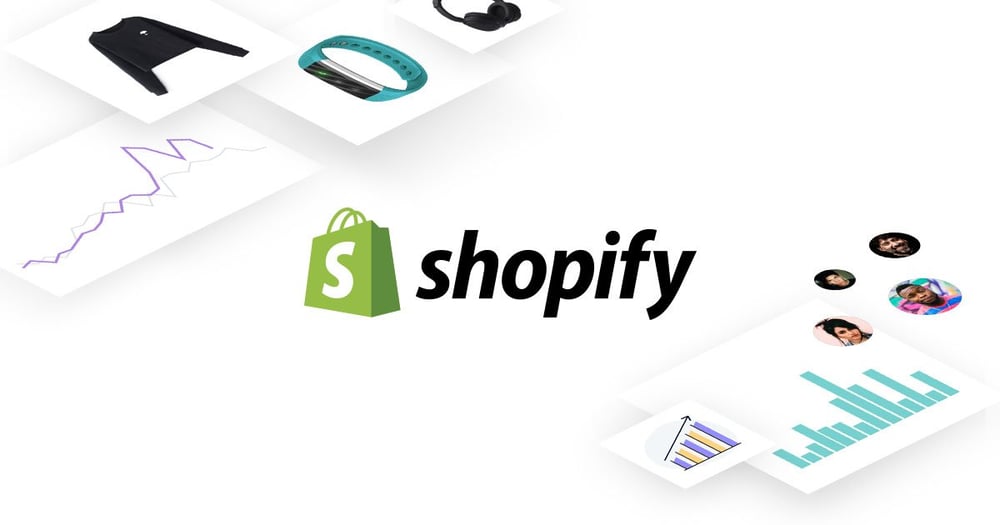
- One of the leading and most popular e-commerce platforms in the industry.
- Can be integrated with Microsoft Dynamics 365 Business Central with the Scaptify Connector.
- Can also be integrated with SAP Business One, Oracle - NetSuite or Sage 300 ERP with Accounting and ERP Integration by eBridge Connections.
Do You Need Better Visibility Into Your Customers' Preferences To Serve Them Better?
Your business may be using a customer relationship management (CRM) software to manage data generated by your front-end operations, such as customer information and sales tracking. However, your CRM software may not have the functionalities to share data with your back-end processes.
This means that data has to be manually updated from one system to another, and vice versa. This can result in issues you may have experienced, such as delays in processing bills and replenishment of depleted inventory.
Because ERP software is designed to manage your back-end processes, integrating your CRM with ERP will ensure that both business systems share a single customer database. This would give you complete visibility on your customers’ history and preferences, and allow you to respond more promptly to meet their needs.
The following two examples of CRM platforms comes with connector tools that you can use to integrate your CRM platform with an ERP software.
Salesforce
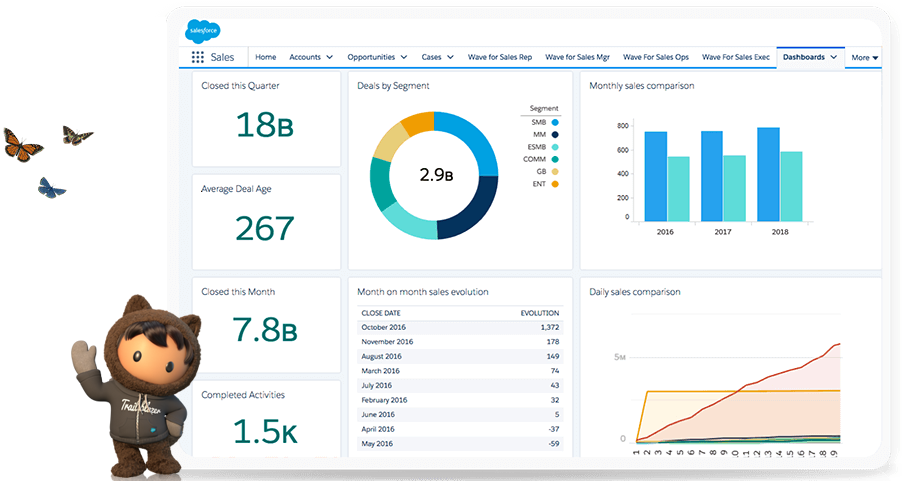
- Established as the first software-as-a-service (SaaS) CRM platform in the world.
- One of the most popular CRM software in the market today.
- Commercient can integrate Salesforce with its SYNC app for both SAP Business One and Microsoft Dynamics 365 Business Central.
- Celigo offers a Salesforce-NetSuite Integration App as well.
HubSpot
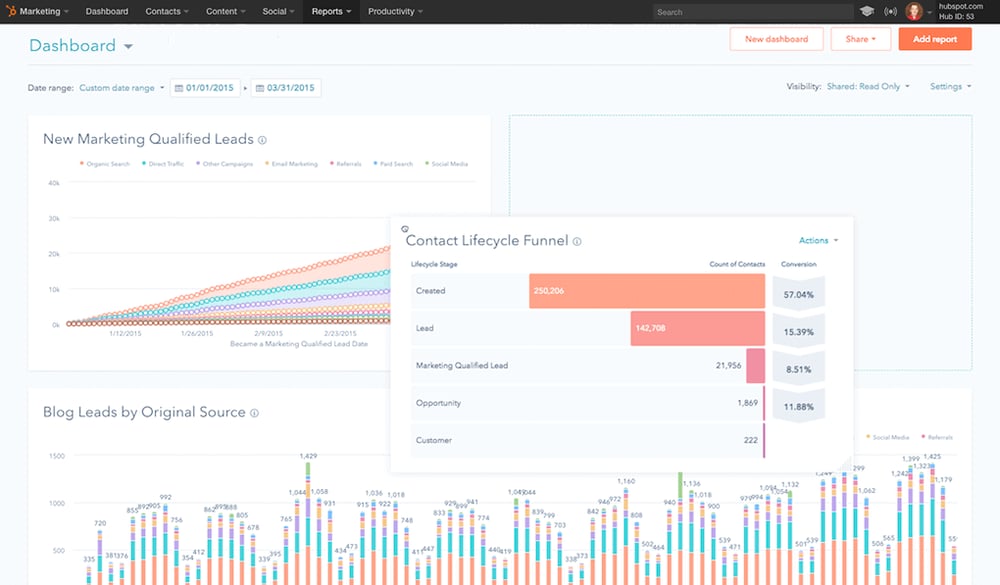
- Ideal for small- to mid-sized enterprises (SMEs) which need a cost-effective CRM solution.
- TIBCO Cloud Integration can integrate HubSpot with both Oracle - NetSuite and Microsoft Dynamics 365 Business Central.
Do You Need Improved Visibility Into Your Warehouse And Inventory To Serve Your Customers Better?
If your business owns a warehouse for keeping inventory in stock, you're probably also using a warehouse management system (WMS) to automate the tracking of inventory within your warehouse.
But if your WMS is not integrated with your ERP software, you may have faced various issues such as data errors due to manual transfer and input between both systems, and your front-line sales personnel being unable to access information in your WMS necessary to serve your customers.
By integrating your WMS with your ERP software, you’ll get a real-time view of your inventory levels and movement of stock, giving you more accurate data, improving the efficiency of your inventory processing, and helps your managers track orders and make decisions more effectively.
We recommend the following two examples of WMS systems which are designed to be easily integrated with your ERP software.
Mobile WMS by Tasklet Factory
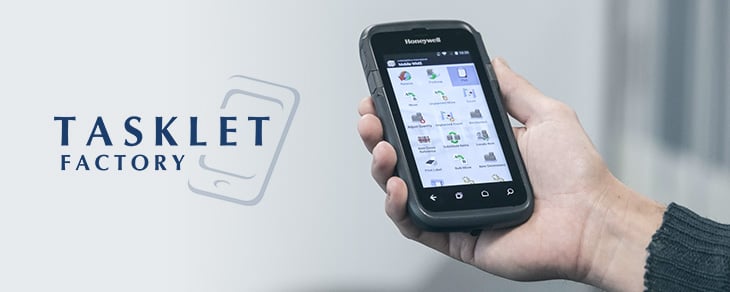
- 100% integrated with Microsoft Dynamics 365 Business Central.
- Features a graphical user interface that's easy to use and is configurable to best fit the needs of a user.
- Can be used with mobile devices, without needing to invest in specialised hardware.
Sage Inventory Advisor by NETSTOCK
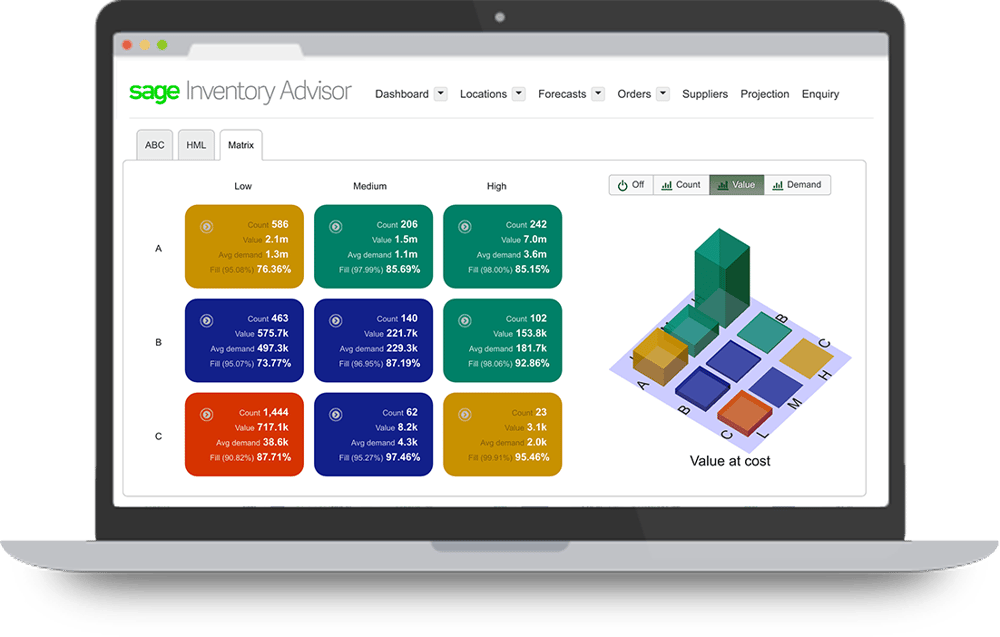
- A cloud-based inventory solution which can be implemented directly into Sage 300 ERP.
- Comes with forecasting and order recommendation features.
- Can be used with mobile devices, without needing to invest in specialised hardware.
Do You Need To Consolidate Expense Management Into Your Financial Accounting?
If your sales staff travels frequently as part of their job scope, your business may have a travel & expense (T&E) management software to help you keep track of the receipts and claims from your personnel.
But if you're using a standalone expense management software, you have to manually export those records to your financial and accounting systems. Not only does manual processing delay reimbursements and increase costs, it also leads to a higher rate of user errors that could hinder compliance with your corporate policies for business expenses.
According to research done by Aberdeen, integrating your expense management software with an ERP solution can provide the following benefits:
- 33% lower costs of processing expenses
- 34% increase in rate of compliance with travel policies, and
- 35% quicker rate of reimbursement.
We recommend two examples of expense management software that are designed to be integrated with ERP solutions below.
Continia Expense Management
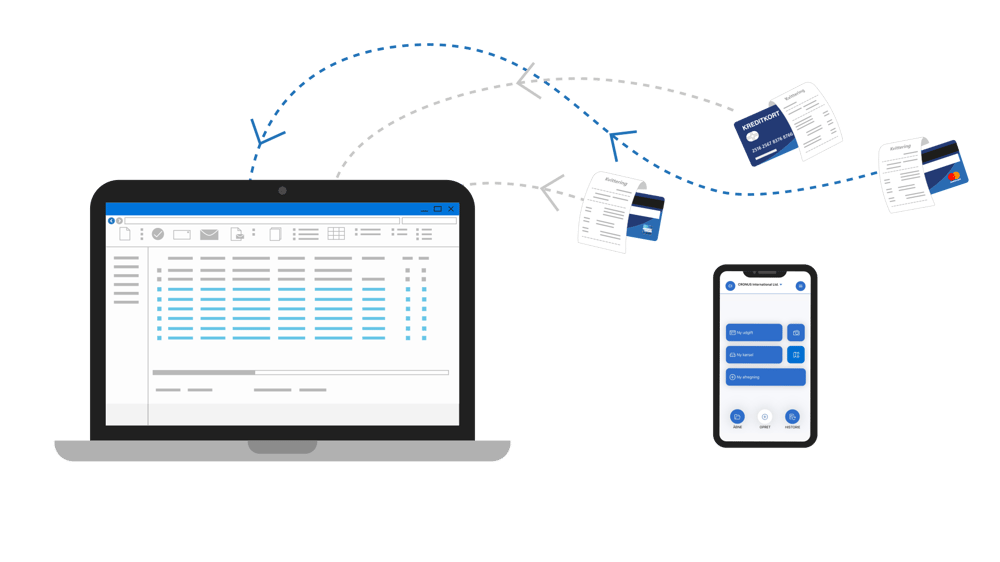
- Designed to work with Microsoft Dynamics 365 Business Central.
- Allows your business travellers to easily report their expenses on-the-go
- You can directly import your employees' credit card spending and automatically link them with a registered receipt
Rydoo Expense
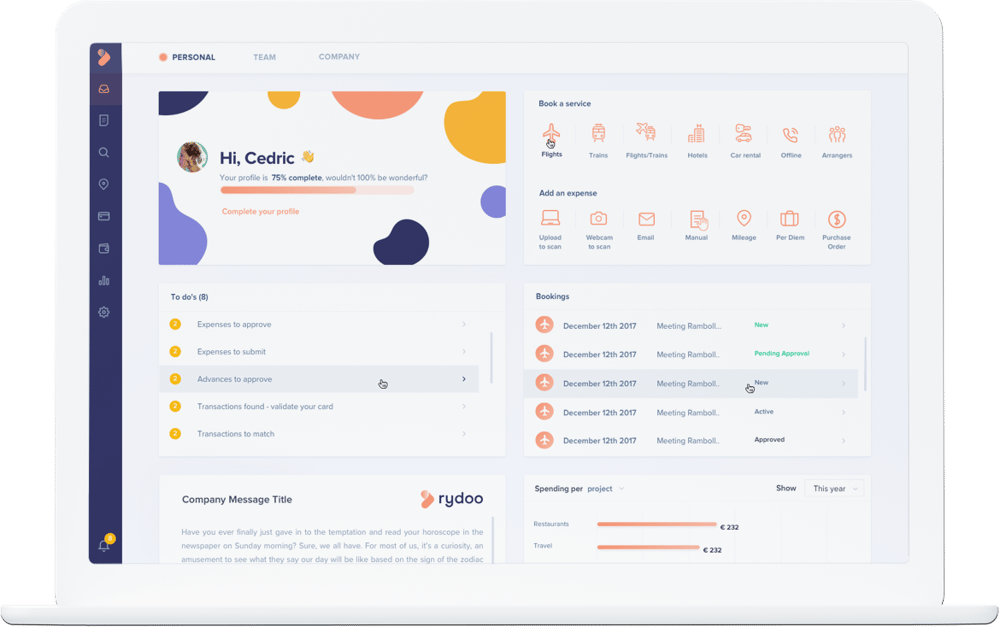
- Uses receipts uploaded by your business travellers to create expense reports, which can be exported as PDF or CSV files.
- Gives you a high degree of control over the expense approval process.
- Comes with native integration options for SAP Business One and Oracle - NetSuite.
Do You Need More Powerful Reporting Tools?
While your ERP software is designed to integrate all data generated from your business processes to give you real-time insight into the state of your business, its native reporting tools may not be sufficiently useful for your purposes for one of many reasons.
The reports that your ERP software generates may provide too little information, or it may not be presented in a format that’s useful for helping you understand the data which is being presented to you. To help with this, you may want to consider integrating a third-party reporting tool with your ERP software.
At AFON, we recommend one of the reporting solutions offered by Jet Global.
Jet Global
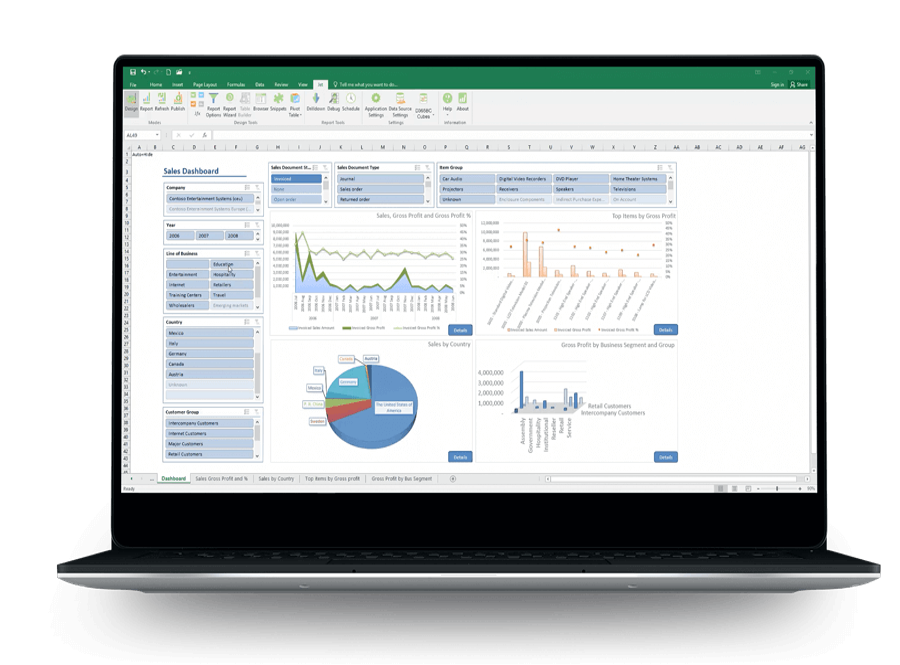
- Offers a range of advanced reporting tools designed for Microsoft Dynamics 365 Business Central.
- Pulls data from Business Central to generate financial reports in Excel spreadsheets.
- AFON is the Top Jet Global Partner in Asia, and can provide integration and training services for your business.
Here Are Some Of The Highlights From Release 20.0 Of Jet Global.
Enhance Your ERP Software With Third-Party Integrations
Modern ERP software are comprehensive solutions that offer a full suite of features and functionalities, but their full potential is realised in the integration of other software that your business is using.
This is especially the case with third-party extensions and add-ons, which are designed to enhance and complement existing features and functionalities in ERP software to make them better-customised for your unique business needs.
Therefore, when choosing an ERP software to implement in your business, you should also consider what third-party extensions and add-ons are available for each of your options, and how they will help make each ERP solution a better fit for your business.



